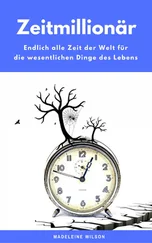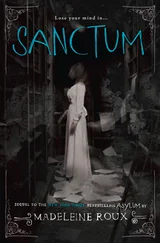Sarah Bynum - Madeleine Is Sleeping
Здесь есть возможность читать онлайн «Sarah Bynum - Madeleine Is Sleeping» весь текст электронной книги совершенно бесплатно (целиком полную версию без сокращений). В некоторых случаях можно слушать аудио, скачать через торрент в формате fb2 и присутствует краткое содержание. Год выпуска: 2008, Издательство: Harcourt, Inc, Жанр: Современная проза, на английском языке. Описание произведения, (предисловие) а так же отзывы посетителей доступны на портале библиотеки ЛибКат.
- Название:Madeleine Is Sleeping
- Автор:
- Издательство:Harcourt, Inc
- Жанр:
- Год:2008
- ISBN:нет данных
- Рейтинг книги:5 / 5. Голосов: 1
-
Избранное:Добавить в избранное
- Отзывы:
-
Ваша оценка:
- 100
- 1
- 2
- 3
- 4
- 5
Madeleine Is Sleeping: краткое содержание, описание и аннотация
Предлагаем к чтению аннотацию, описание, краткое содержание или предисловие (зависит от того, что написал сам автор книги «Madeleine Is Sleeping»). Если вы не нашли необходимую информацию о книге — напишите в комментариях, мы постараемся отыскать её.
Madeleine Is Sleeping — читать онлайн бесплатно полную книгу (весь текст) целиком
Ниже представлен текст книги, разбитый по страницам. Система сохранения места последней прочитанной страницы, позволяет с удобством читать онлайн бесплатно книгу «Madeleine Is Sleeping», без необходимости каждый раз заново искать на чём Вы остановились. Поставьте закладку, и сможете в любой момент перейти на страницу, на которой закончили чтение.
Интервал:
Закладка:
pose
the director attaches, by means of very small clamps, the ends of six narrow wires to the fleshiest parts of a patient’s face. These wires connect the patient to a highly sensitive machine, the newest of its kind, which is too large to appear in the photograph itself. The machine looms darkly in the background; it takes up an entire wall. Three serious men stand before it, adjusting its dials. Or this is the impression that the director hopes to effect. The wires do not, in fact, lead anywhere. They protrude crookedly from the patient’s head, and this, combined with the dullness of his eyes, suggests a mutinous automaton, one who has tugged himself free from the clockwork. While those that are wild-eyed, what they resemble most are gorgons.
recognition
bent over the fire, Mother hatches a plan: small bodies creeping in the night, and then, at the hospital wall, each hoisted upon the shoulders of another. A stairway of children. The very highest step will be Claude; he raps on the window, awakens the slow-witted giant inside. Open the window! the boy urges. I have something for you! A delicious lure, baked by Mother; a series of soft, mournful bird calls; a pony cart rolled out into position; an idiot falling through the darkness. When he lands, the cart wheels nearly break. The grain sacks exhale huge clouds of dust. The horse rears up, and then is quieted. The staircase dismantles itself. The bridegroom is abducted. As Mother devises the retreat, a hand mirror appears before her. Beatrice is holding it; she has captured, again, something resembling a cow. Do not worry, Beatrice says, Madeleine is still sleeping. In the roundness of the mirror, Mother sees her own face captured. She sees how her eyes are shining, and her mouth clenched, in the great effort of bringing something forth, in the disfiguring strain of it. She barely understands the face as her own. But I am not a monster, Mother says.
house of the sleeping beauties
To marry, to rear her children, these things were on the surface good, Mother thinks. But to have had the long years in her power, to have controlled their lives, to have warped their natures even, these might be evil things. Perhaps, beguiled by custom and order, one’s sense of evil goes numb.
alphabet
it is time to begin. This photograph shall be titled, Terror! Terror? Adrien wonders, beneath his black hood. You must make the subject appear terrified! says the director. Fear will be the first entry in our alphabet. How am I to do that? Adrien asks, hidden behind his camera. This is your science, not mine, says the director with respect. I will stand here, out of the way, and quietly watch you at work.
the photographer tries
when they were children, Adrien’s brother owned a flock of racing pigeons. The pigeons lived in a loft atop the family’s bam, and every night Adrien listened to the rub and flutter of their grey wings. Every day his brother trained them, and he watched, following his brother farther and farther away from home, across pastures, through villages, into places he had never been. Always at the moment he felt most thirsty and discouraged, his brother would lift his hands above his head and throw the pigeon into the sky. How loud the wings sounded! As loud as a thunderclap; as loud as the sound of his brother, whooping. It was the elation of this instant that made him walk such distances, in such silence. He wished one day to race pigeons of his own.
earthbound
but his brother thought him better suited to keeping rabbits While he loved all airborne things, Adrien was the kind who lived close to the ground, who liked to sit under tables, and press his cheek against moss. His brother had dedicated each of his pigeons to a Roman ‘1 emperor, a method of naming that struck Adrien as very sensible. ‘ So in his hutch, just as in his brother’s pigeon loft, one could find a Tiberius, a Hadrian, a Marcus Aurelius, a Nero. He might have been a good rabbit keeper, but he was forgetful, and this often resulted in their escape. He would forget to secure the latch, or if he took them out for exercise, he would become j absorbed in some other small thing and forget to watch them. Once, his rabbits spent an afternoon in the front parlor, where they ate the fringe off an ornamental shawl, and scattered their f pellets in discreet places about the room.
gift
during this time Adrien fell in love ‘with the neighbors daughter, and gave her the only gift he had, a rabbit. But she already had a pet, a brown and white spaniel, so instead she had a muff made, to keep her hands warm when she went ice-skating in the winter. He did not inform his brother of this exchange. But he was afraid that his brother would notice something missing. ‘Where’s Augustus? he might ask, and then Adrien would have to tell him. For this reason he grew anxious in his brother’s presence, starting when he entered a room, and jigging around the hutch, to distract him, whenever he drew near. When his brother asked him to display his rabbits at the fair, he refused. His brother did a simple thing, then: he awoke Adrien in the night, led him to the hutch, and as they stood before it, in the starlight, watching the rabbits sleep, their sides softly heaving, he stamped his foot and clapped his hands. Just once, and sharply. It was an act so simple, so sudden and mysterious, that even after he had knelt down, unfastened the latch, and emerged with a rabbit, limp in his grasp, Adrien still did not understand what had happened. Don’t you see, his brother said, in exasperation: They are timid creatures. I scared this one to death.
terror
ADRIEN BURSTS from behind his camera. With his foot, he stomps. With his hands, he claps. With sympathy, the patient smiles. Perhaps, whispers the director, a different method is required. The photographer is apologetic: If only you knew Felix, he says If only he were here. But he is in Paris, on the boulevard des Capucines, where he is draping a length of dark velvet about the divine Sarah Bernhardt so that her shoulders will not appear too skinny. Oh Felix, he sighs. Felix. Disappearing beneath his hood, Adrien continues to mutter, J the name, and each time he does so, it is with a new expression: meditatively, at first, but then in surprise, as if he has encountered there in the darkness, the very person he happened to be thinking of. Felix! It is an exclamation of sheer and startled delight, and the reunion a happy one, if somewhat reproachful. The name is spoken in a playful, scolding tone, and then, Felix, he says, more mildly this time, to indicate that all is forgiven. But in the midst of this | cheerful exchange, a note of worry is introduced. Felix? he asks, Felix? he says, with increasing agitation. Perhaps the friendly meeting has taken a turn. Perhaps old resentments are awakened, the brother’s brow darkening, the brother pulling himself up to his full height. Felix, he squeaks. Felix, no! he says, now fully alarmed. But maybe the brother is not coming closer. Quite possibly, he is walking away. Quite possibly, he has tired of the encounter, has an appointment to keep, and wishes to continue on. Over and over again the photographer cries, and it is impossible to tell if his despair is that of a person menacingly approached, or that of a person left behind. Felix! he cries. Felix! Felix! Felix! The photograph is a success. In it, the patient wears an expression of fear.]
objects lost on journeys
Madeleine’s hands make her useless. But she jostles the wagon stoops over the canisters, and squints at the bulbs, in order to create the appearance of usefulness. Have you found him? Adrien whispers. Not yet, Madeleine says. I’m too short. Adrien balances a glass plate between his hands, its surface etched with a terrified face, and says, I am beginning to worry. ‘?i Have you ever, he wonders, begun a journey with a suitcase, and guarded that suitcase closely, keeping it beneath your bed at night, % and watching over it at the station like a mother? Then the suitcase is lost, but you are consoled, because a lady passenger has given you a pair of eyeglasses with green-tinted lenses, and you guard them on your journey with all the care that you once bestowed upon your suitcase. Then the eyeglasses are shattered, but you hardly notice, | you have become so attached to the first edition you found in a moldering bookshop. Then the first edition tumbles over the railing of the ferry, the ferry carrying you from one end of the lake to the other, and when you land, and see the pretty town on the side of the mountain, you remember: on a stiff card, tucked into the lining of your suitcase, there is written the address where you are expected. I Are you worried, Madeleine asks, that we will never find him? I am worried, Adrien says, that I will leave the hospital, that I will travel for many days, and only upon wandering into a market and finding a stall selling figs, or meeting the eyes of a young prostitute, or stumbling over a mangy dog run out into the street, only then will I realize what I have forgotten to bring with me: M. Pujol.
Читать дальшеИнтервал:
Закладка:
Похожие книги на «Madeleine Is Sleeping»
Представляем Вашему вниманию похожие книги на «Madeleine Is Sleeping» списком для выбора. Мы отобрали схожую по названию и смыслу литературу в надежде предоставить читателям больше вариантов отыскать новые, интересные, ещё непрочитанные произведения.
Обсуждение, отзывы о книге «Madeleine Is Sleeping» и просто собственные мнения читателей. Оставьте ваши комментарии, напишите, что Вы думаете о произведении, его смысле или главных героях. Укажите что конкретно понравилось, а что нет, и почему Вы так считаете.












